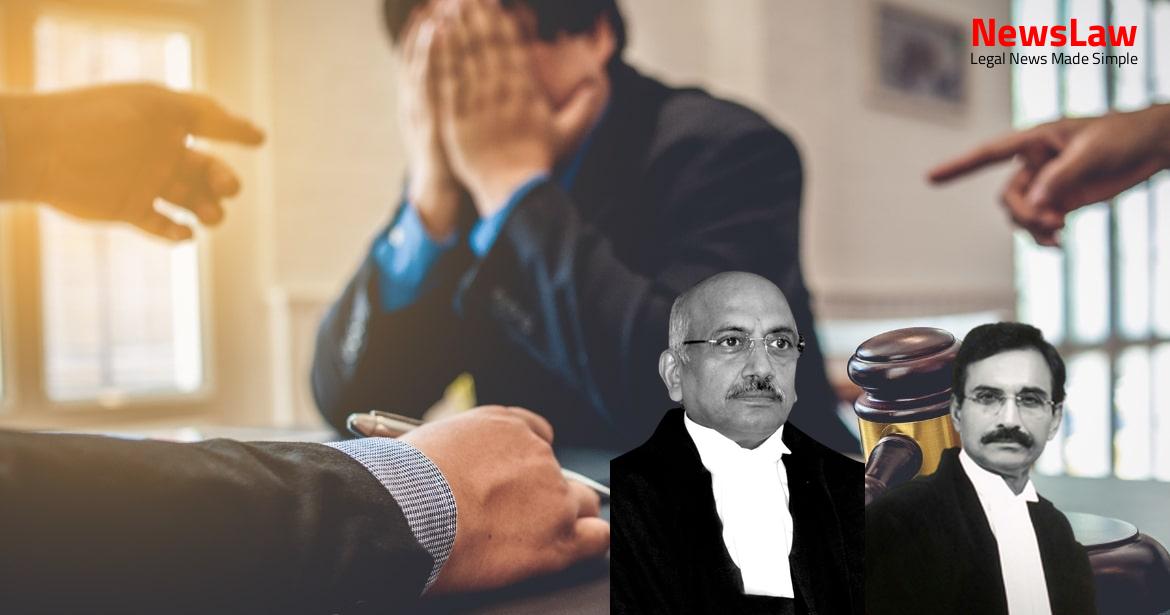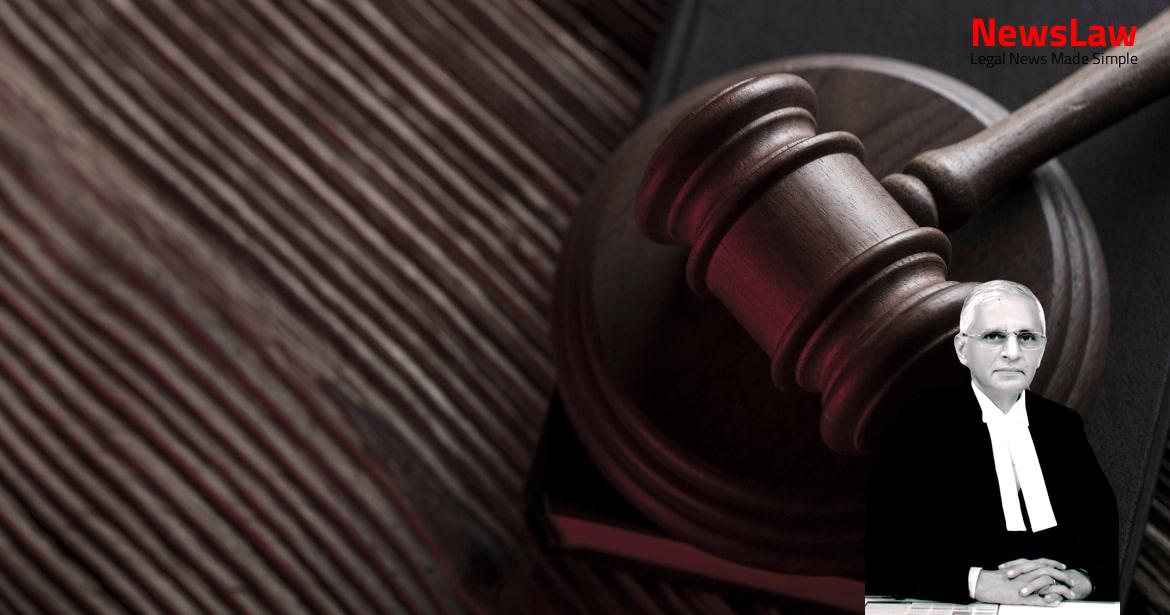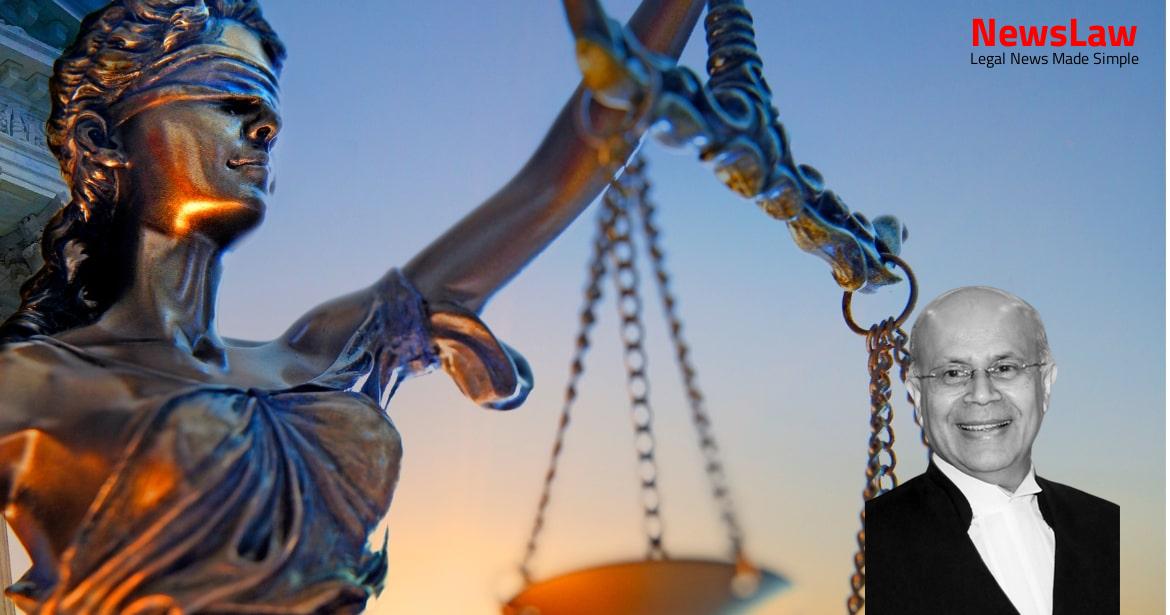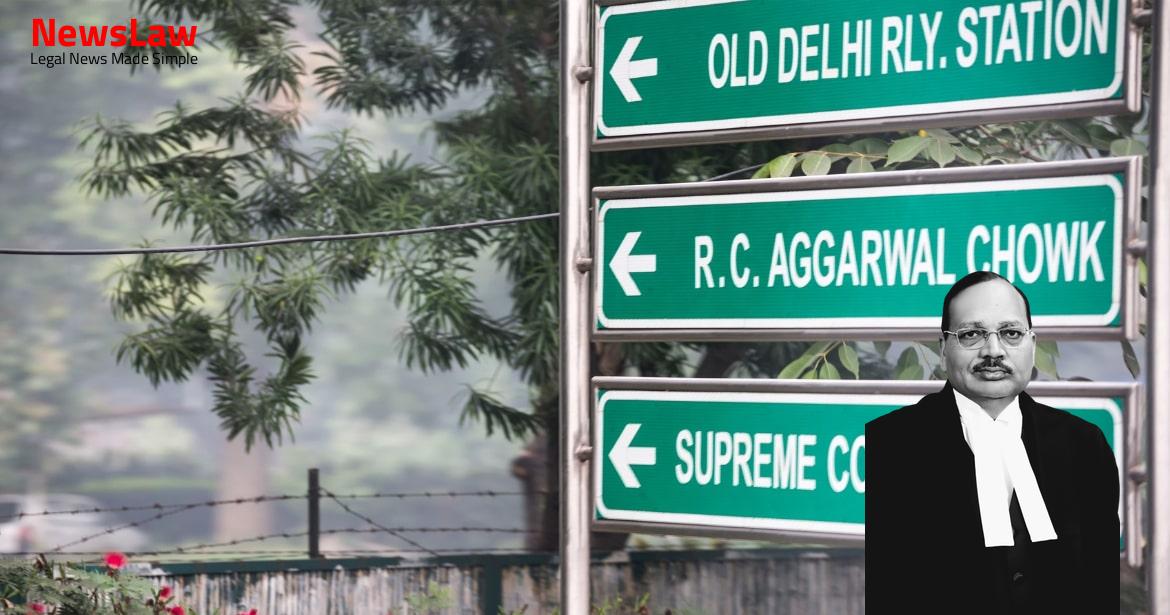A significant ruling by the Supreme Court of India was issued in the case of a land dispute between Brijesh Kumar and Shardabai. The judgment delves into the complexities of adverse possession and the requirement of proving hostile possession. This blog post will provide insights into the legal considerations and implications of the court’s decision.
Facts
- The plaintiff filed a suit for possession on the basis of purchase of suit property from the Managing Officer, Department of Rehabilitation, Government of India in a public auction.
- The defendants denied the plaintiff’s ownership and asserted their own continuous possession for over two centuries.
- The plaintiff presented evidence through PW-4 Chander Bhan, proving the issuance of the sale certificate in their favor on 15 January, 1965.
- Issue No. 5 was decided against the defendants, resulting in the suit being decreed in favor of the plaintiff.
- The High Court of Delhi later allowed the defendants’ second appeal and dismissed the plaintiff’s suit for possession based on title.
- The trial court found in favor of the plaintiff on Issue No 3, declaring the plaintiff as the owner of the property purchased through auction.
- The High Court determined that adverse possession by the defendants over the property had matured within 12 years from March 1964 to November 1995, rendering the suit filed in February 1979 as time-barred.
- The High Court affirmed the plaintiff’s ownership based on evidence like electricity and house tax bills indicating possession by the defendants from November 1963.
- The first Appellate Court upheld the plaintiff’s ownership but differed on Issue No 2, ruling that the suit filed in February 1979 was within the limitation period.
- Issue No 4 concluded that possession of land does not establish possessory title unless held adverse to the true owner.
Also Read: Interpretation of Mandatory Statutory Time Limits
Arguments
- Long possession does not always amount to adverse possession.
- For adverse possession, the person in possession must admit hostile possession to the knowledge of the true owner.
- Defendants in this case did not admit the title of the appellant or the adverse possession to the knowledge of the true owner.
- The trial court found in favor of the appellant’s title, a finding not overturned by the higher courts.
- Defendants claim long and continuous possession but it does not qualify as adverse possession under Article 65 of the Limitation Act.
- Defendants argue possession is adverse to the knowledge of the appellants based on testimony from plaintiff’s witness.
Analysis
- In Brijesh Kumar & Anr. v. Shardabai (Dead) by Legal Representatives & Ors., the Court emphasized that payment of tax receipts and mere possession for some years is insufficient to claim adverse possession.
- A Constitution Bench in M Siddiq (D) through LRs v. Mahant Suresh Das & Ors. clarified that adverse possession is based on the belief that the property belongs to another, against whom the claimant asserts adverse possession.
- The plaintiff’s ability to claim title through adverse possession was discussed in the case of Ravinder Kaur Grewal & Ors. v. Manjit Kaur & Ors.
- Defendants did not admit the vesting of the suit property with the Managing Officer or its transfer to the plaintiff.
- Defendants claimed continuous possession but did not assert hostility towards the true owner.
- Defendants denied both the Managing Officer’s and the plaintiff’s title.
- Possession since November 1963 till the filing of the suit does not result in title as defendants never acknowledged plaintiff’s ownership.
- High Court’s findings that defendants perfected their title by adverse possession deemed legally unsustainable.
- Judgment and decree of the High Court set aside, suit decreed, appeal allowed.
Also Read: Challenging Legal Analysis in Acquittal Reversal
Case Title: SRI UTTAM CHAND (D) TH LRS . Vs. NATHU RAM (D) THR. LRS. (2020 INSC 42)
Case Number: C.A. No.-000190-000190 / 2020



